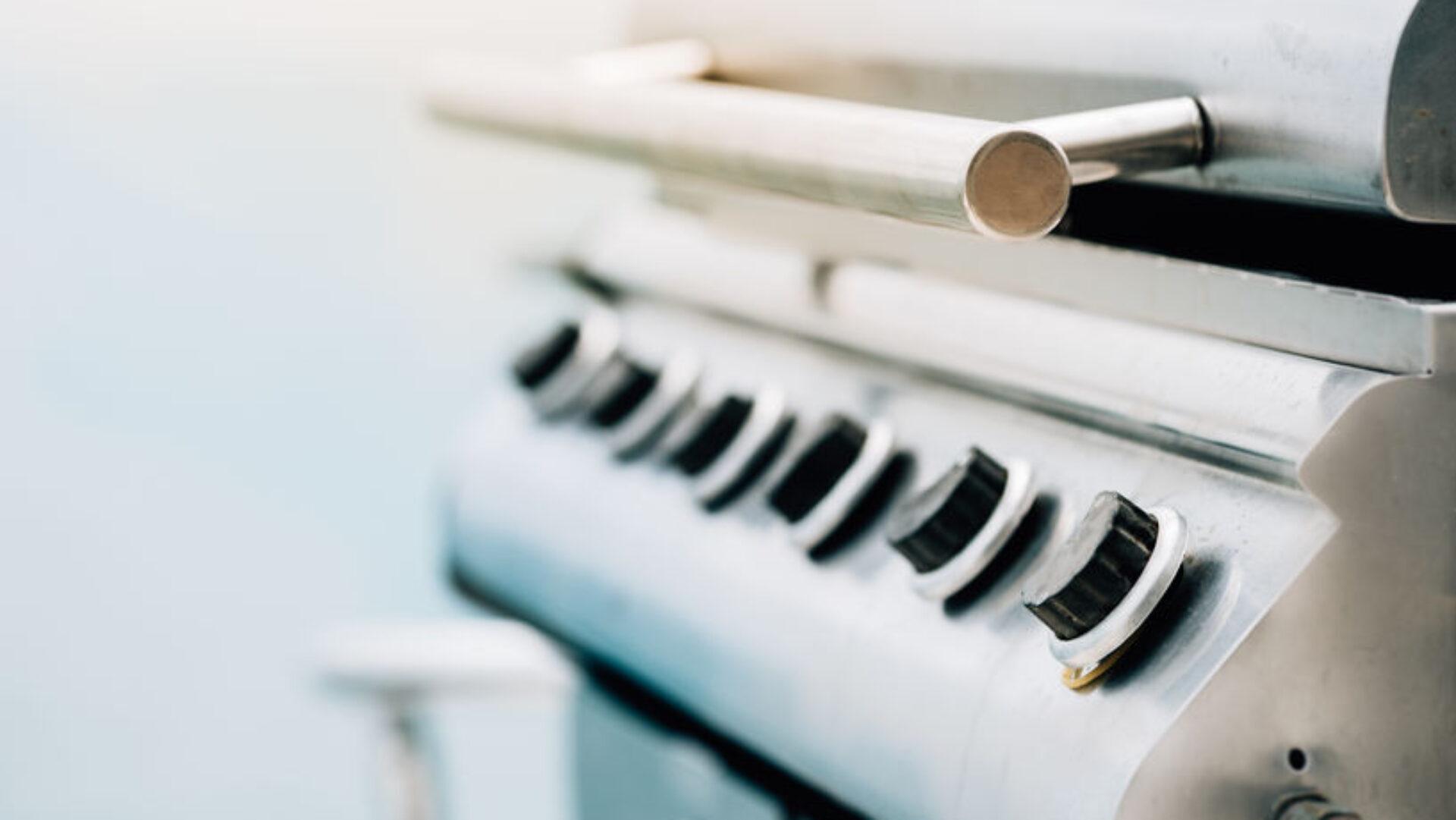This content has been archived. It may no longer be relevant
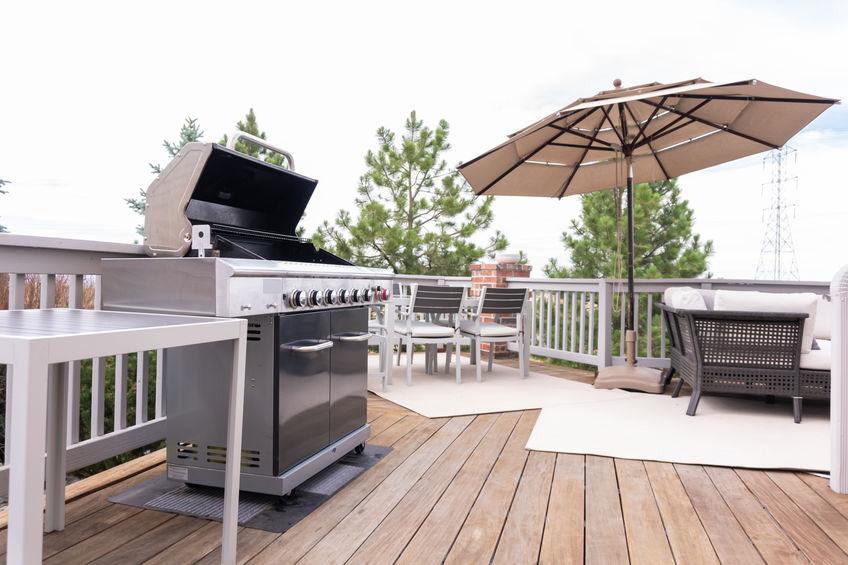
When it comes to maintaining your outside grill, covering it properly can significantly increase its longevity.
Exposure to the elements, such as rain, snow, and sunlight, can damage the grill’s surface and internal components, leading to rust and other forms of wear and tear.
A grill cover acts as a protective shield, shielding the grill from moisture, dust, and debris, which can harm the exterior and interior of the grill.
By using a cover, you can protect your grill from harsh weather conditions, preventing water from getting inside the grill and causing damage.
Additionally, covering your grill can also protect it from UV radiation, which can cause fading, discoloration, and cracking of the grill’s exterior.
This is especially important if your grill is made of plastic or painted metal.
Over time, sun exposure can cause these materials to deteriorate, ultimately shortening the lifespan of the grill.
In summary, using a cover for your outdoor grill is essential to ensure its longevity.
By shielding your grill from the elements and UV radiation, you can prevent costly repairs and replacement, saving you money in the long run.
The Benefits of Using a Cover for Your Outdoor Grill
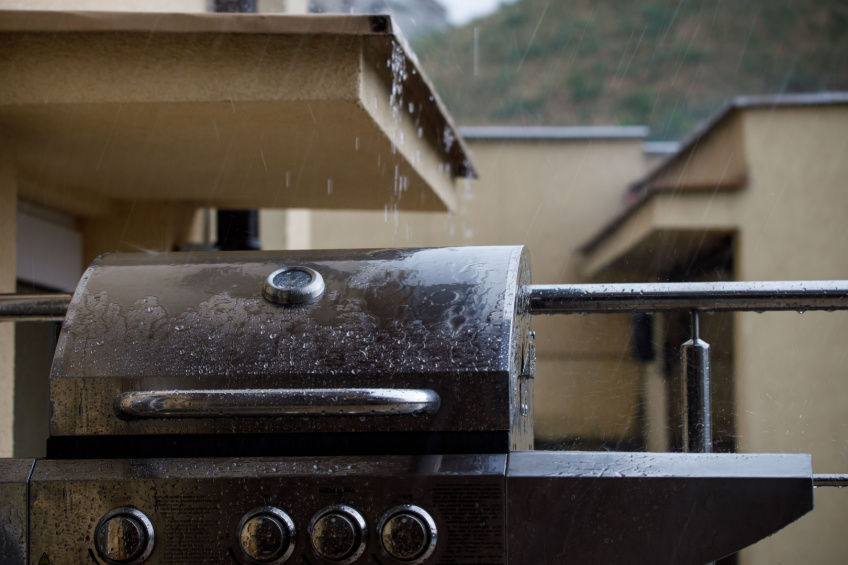 Using a cover for your outdoor grill has numerous benefits.
Using a cover for your outdoor grill has numerous benefits.
- Protection from the Elements. One of the primary benefits of using a cover for your grill is protection from the elements. Covers shield your grill from rain, snow, wind, and other harsh weather conditions that can damage the grill’s exterior and internal components.
- Prevents Rust and Corrosion. Another benefit of using a cover is that it prevents rust and corrosion from developing on your grill’s metal surfaces. Moisture can cause rust to form, which can weaken the grill and make it less effective over time. Covers help keep moisture out, preventing rust from developing.
- Keeps Your Grill Clean. Covering your grill when it’s not in use can also help keep it clean. Covers protect your grill from dust, dirt, and other debris that can accumulate on the grill’s surface and cooking grates.
- Reduces the Need for Maintenance. Using a cover can reduce the need for maintenance on your grill. Covers prevent debris and moisture from getting into the grill, which can cause damage or require extra cleaning. By reducing the amount of dirt and moisture that your grill is exposed to, you can prolong its lifespan and save money on repairs or replacement.
- Preserves the Appearance. Lastly, covering your grill can help preserve its appearance. Covers protect the grill’s exterior from fading or discoloration caused by UV rays from the sun, keeping your grill looking new and clean for longer.
In summary, using a cover for your outdoor grill can protect it from the elements, prevent rust and corrosion, keep it clean, reduce the need for maintenance, and preserve its appearance.
Factors to Consider Before Choosing a Grill Cover
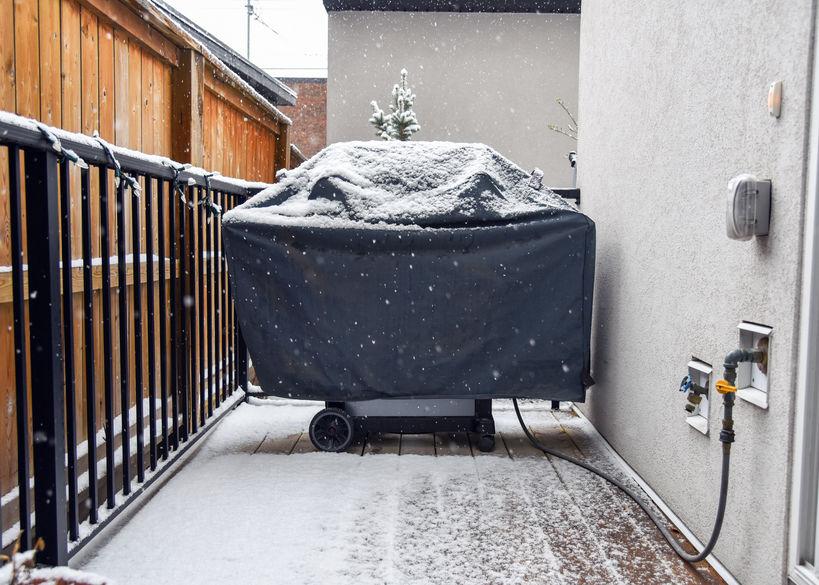
Before choosing a grill cover, there are several factors you should consider to ensure that you get the best cover for your grill.
- Size and Fit. The most important factor to consider is the size and fit of the cover. You need to make sure that the cover you choose is the right size for your grill. A cover that is too small won’t offer adequate protection, while a cover that is too large will flap in the wind and not fit snugly, potentially allowing moisture to get in.
- Material. Grill covers are available in a range of materials, including vinyl, polyester, and canvas. Each material has its pros and cons, so you should choose one that is durable, weather-resistant, and suitable for your needs.
- Weather Conditions. Consider the climate where you live and the weather conditions your grill will be exposed to. If you live in an area with heavy rainfall or snowfall, you’ll need a cover that is waterproof or water-resistant. Similarly, if you live in an area with high winds, you’ll need a cover that is sturdy and won’t blow away.
- Ventilation. Good grill covers should have some form of ventilation to allow air to circulate and prevent moisture buildup, which can cause mold or mildew.
- Brand. Consider buying a grill cover from a reputable brand with good reviews and a warranty. This will ensure that you get a high-quality cover that will last for years.
- Price. Grill covers come at different price points, and you should consider how much you’re willing to spend. Cheaper covers may not last as long as more expensive ones, but you can still find high-quality covers that are affordable.
In summary, when choosing a grill cover, consider the size and fit, material, weather conditions, ventilation, brand, and price to ensure that you get the best cover for your grill.
Types of Grill Covers Available On the Market
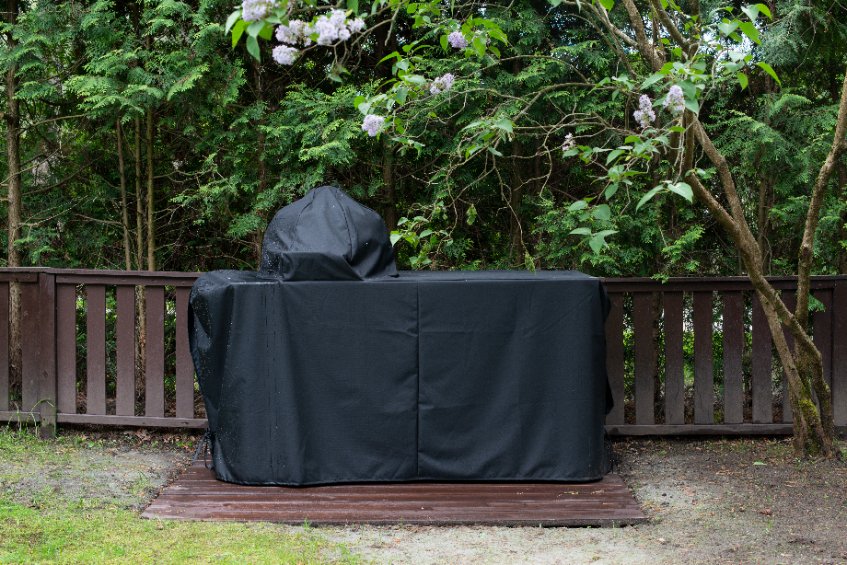
There are several types of grill covers available on the market, including.
- Vinyl Covers. Vinyl covers are affordable and easy to find in most stores. They are lightweight and offer basic protection against the elements. However, they may not be as durable as other materials and can crack or fade in direct sunlight.
- Polyester Covers. Polyester covers are more durable than vinyl covers and offer better protection against the elements. They are often treated with a water-resistant coating to prevent water from penetrating the cover.
- Canvas Covers. Canvas covers are the most durable type of grill cover and offer the best protection against the elements. They are heavy-duty, waterproof, and resistant to tears and punctures. However, they are typically more expensive than other types of covers.
- Insulated Covers. Insulated covers are designed to keep your grill warm during cold weather. They have a layer of insulation that traps heat inside the cover, allowing you to use your grill in colder temperatures.
- Custom Covers. Custom covers are made specifically for your grill’s make and model, ensuring a perfect fit. They offer maximum protection against the elements and are typically made from high-quality materials like canvas or polyester.
- Smoker Covers. Smoker covers are designed specifically for smokers and provide protection against the elements and UV radiation. They are typically made from heavy-duty materials like canvas and come with ventilation features to prevent moisture buildup.
Examples of Good Grill Covers
- Amazon Basics Gas Grill Cover – This grill cover is made of 100% woven polyester fabric and features a waterproof backing to keep your grill dry. It measures 60 inches long, 22.5 inches wide, and 46 inches high, making it suitable for most gas grills.
- iCOVER Grill Cover – This grill cover is made of 600D polyester fabric with a waterproof PVC coating to protect your grill from rain, snow, and other elements. It features adjustable straps and buckles to keep it securely in place and fits most medium-sized gas grills.
- Classic Accessories Veranda Grill Cover – This grill cover is made of heavy-duty polyester fabric with a water-resistant undercoating to protect your grill from rain, snow, and sun damage. It features air vents to reduce condensation and mold growth and fits most medium-sized gas grills.
- UNICOOK Heavy Duty Waterproof Grill Cover – This grill cover is made of 600D polyester fabric with a waterproof PVC coating to protect your grill from rain, snow, and sun damage. It features adjustable straps and buckles to keep it securely in place and fits most large-sized gas grills up to 65 inches long.
How to Properly Cover Your Outdoor Grill
Properly covering your outdoor grill is essential to ensure its longevity and protect it from the elements.
Here are some steps to follow when covering your outdoor grill.
- Clean the Grill. Before covering your grill, make sure to clean it thoroughly. Remove any food debris, grease, or ashes that may have accumulated on the grates or in the grease tray. This will prevent mold or mildew from growing under the cover.
- Allow the Grill to Cool. Make sure the grill is completely cool before covering it. Covering a hot grill can cause the cover to melt or cause a fire.
- Choose the Right Cover. Make sure the cover you choose is the right size for your grill and made from a suitable material for your weather conditions. Look for covers with ventilation to prevent moisture buildup.
- Secure the Cover. Once you have the right cover, make sure to secure it properly. Some covers come with Velcro straps, while others have drawstrings or buckles. Ensure that the cover fits snugly to prevent moisture or debris from getting inside.
- Store the Grill. If you plan to store your grill for an extended period, make sure to remove the propane tank and store it in a cool, dry place. Cover the grill and place it in a protected area, such as a garage or shed.
- Check the Cover Regularly. Check your grill cover regularly to ensure it is still in good condition and hasn’t been damaged by weather or animals. Replace the cover if it is damaged or no longer fits properly.
In summary, properly covering your outdoor grill involves cleaning it, allowing it to cool, choosing the right cover, securing the cover, storing the grill properly, and checking the cover regularly.
By following these steps, you can prolong the life of your grill and protect it from the elements.
Tips for Maintaining Your Grill Cover to Ensure Maximum Protection
Maintaining your grill cover is essential to ensure maximum protection for your grill.
Here are some tips for maintaining your grill cover.
- Clean the Cover. Regularly clean the cover with mild soap and water to remove dirt, dust, and stains. Do not use harsh chemicals or abrasive cleaners, as they can damage the cover.
- Dry the Cover. Make sure to dry the cover completely before storing it. Wet covers can cause mold, mildew, or rust to form on your grill.
- Store the Cover Properly. Store the cover in a dry, cool, and well-ventilated area when not in use. Avoid storing it in direct sunlight or near a heat source, as it can cause the cover to deteriorate quickly.
- Inspect the Cover. Regularly inspect the cover for damage, such as holes, tears, or loose seams. Repair any damage as soon as possible to prevent further damage to your grill.
- Protect the Cover from Animals. Animals such as squirrels, rats, and raccoons can be attracted to the smells on your grill and can damage or tear the cover. Use a repellent or cover the grill with a tarp to keep animals away.
- Replace the Cover When Needed. Over time, covers can become faded, torn, or damaged, reducing their effectiveness. Replace your cover when it no longer fits properly or is damaged beyond repair.
In summary, maintaining your grill cover involves cleaning it regularly, drying it completely, storing it properly, inspecting it for damage, protecting it from animals, and replacing it when necessary.
By following these tips, you can ensure your grill remains protected and in good condition for years to come.
Final Thoughts – To Cover or Not to Cover Your Outdoor Grill
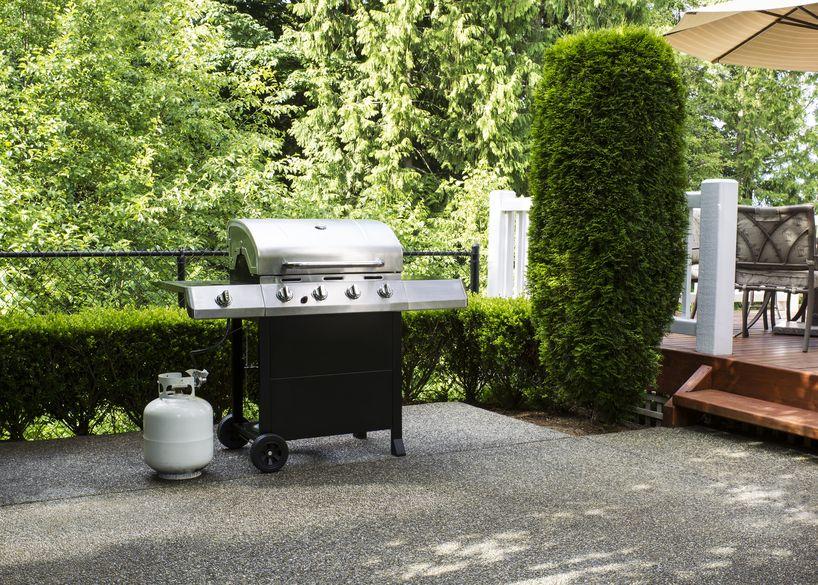
In conclusion, covering your outdoor grill is highly recommended to protect it from the elements, prolong its lifespan, and maintain its appearance.
By using a suitable cover and following proper maintenance techniques, you can ensure your grill remains in good condition and is ready for use whenever you need it.
While some people may argue that covering the grill is unnecessary or that it can trap moisture and cause rust, it’s important to note that using the right cover and following proper maintenance techniques can prevent such issues.
Additionally, the benefits of covering your grill, such as protecting it from the sun, rain, snow, and other weather elements, outweigh the risks.
Ultimately, the decision to cover your grill or not depends on your personal preferences and the climate in which you live.
However, for most grill owners, covering the grill is a wise investment that can help ensure its longevity and overall quality.
